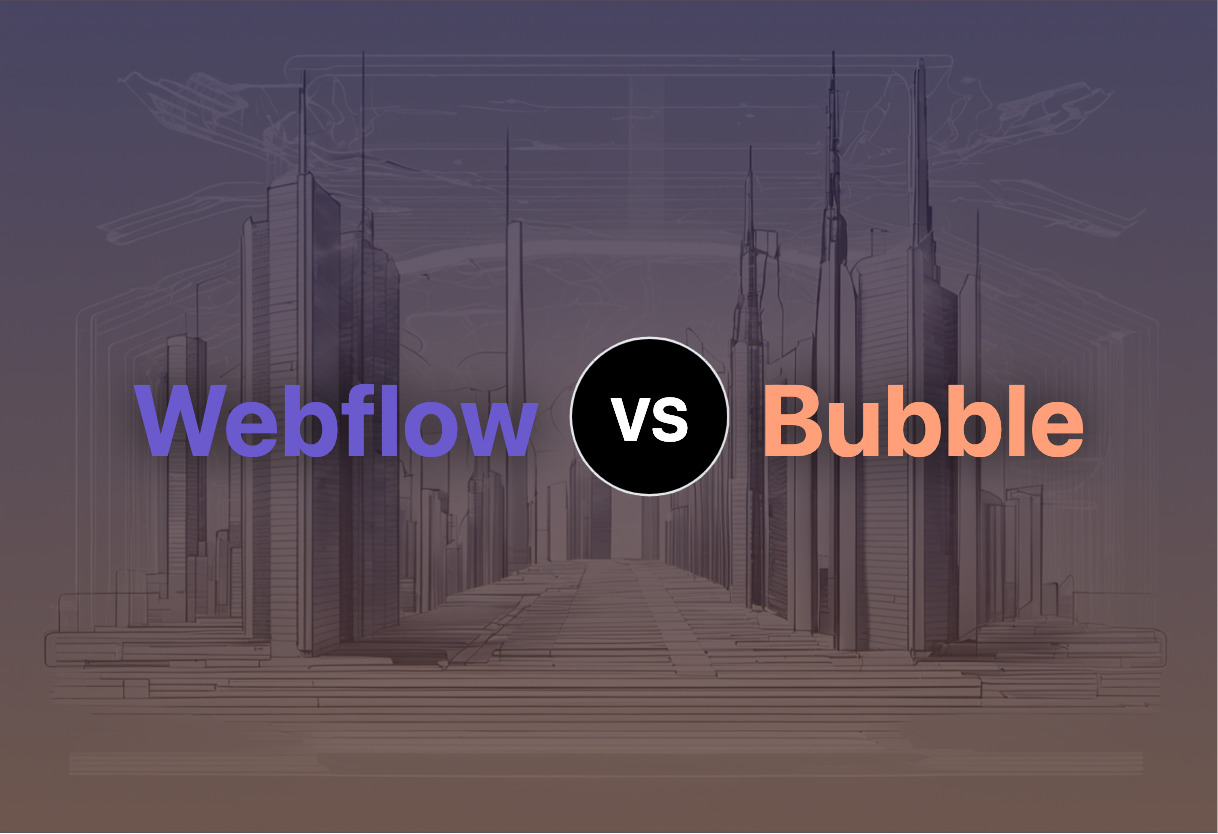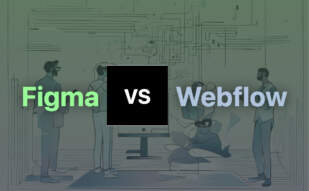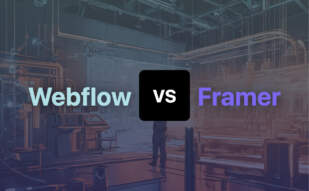Webflow, preferred for its design-led approach, best suits web designers and content creators thanks to its customized, code-free e-commerce platform. On the other hand, Bubble, equipped for building complex web applications sans coding, ideally serves non-technical users eyeing advanced features and custom integrations.

Key Differences Between Webflow and Bubble
- Webflow specializes in design-led, fully customizable e-commerce platforms; Bubble supports building web applications with an emphasis on advanced feature integrations.
- Webflow’s pricing starts at $29/mo, billed annually; Bubble offers four different pricing plans.
- Webflow’s installed CMS offers blogging and custom marketing pages; Bubble offers modern CMS features without needing technical knowledge.
- Webflow secures hosting on SSL domains, while Bubble takes care of hosting and server management.
- Webflow’s no-code environment is ideal for web designers; Bubble’s ease-of-use is suited for non-technical users building complex web applications.
- Webflow’s enhanced design capabilities are appreciated by professional designers; Bubble provides advanced features including drag-and-drop builder and code customization options.
- Webflow supports a wide range of extensions including Zapier app integrations ; Bubble promotes smooth integration with tools like Airtable, Integromat, Weglot, Tidio, Stripe.
| Comparison | Webflow | Bubble.io |
|---|---|---|
| Platform Type | eCommerce platform for website creation without coding | Cloud-based platform for web applications without coding |
| Customization | End-to-end customer experiences and design control | Website, landing pages, blogs, stores using drag-and-drop builder |
| Pricing | From $29 per month when billed annually | 4 Pricing plans available |
| Integration | Stripe, PayPal, Apple Pay, Google Pay, Zapier apps | Airtable, Integromat, Weglot, Tidio, Stripe |
| Shipping & Tax Features | Automated shipping processes, automatic tax calculation | Management of sales scenarios |
| Tutorials & Support | Webflow University provides comprehensive video classes | Excellent documentation, active community forum, customer support |
| SEO Control | SEO control supports meta title, description generation | Webflow more SEO-friendly |
| Usage | Ideal for web designers, web agencies, content creators | Ideal for non-technical users, online sales, e-commerce |
What Is Webflow and Who’s It For?
Webflow is a robust eCommerce platform that transcends traditional web design boundaries by enabling customized, code-free site creation. It offers users control over end-to-end customer experiences. Founded by Jameel Mohammed, with an emphasis on design-based branding, the platform is well-suited for firms selling a variety of products or services.
Endorsed by experienced designers like Maximilian Müsgens and Charli Marie, Webflow’s powerful features make it an excellent choice for web designers, tech agencies, and content creators. With over 368,000 sites built, it’s a proven secure, customizable platform that’s ideal for tech potent modern businesses.

Pros of Webflow
- Highly customizable platform minus coding
- Integrated Google Analytics for data analysis
- Effective SEO controls
- Integration with major payment channels & other apps
- Secure SSL hosting
Cons of Webflow
- Pricing starts at $29/m when billed annually
- Transaction fees through Stripe
- Detailed shipping and tax setup may be complex
What Is Bubble.io and Who’s It For?
Bubble.io is a versatile, cloud-based platform that revolutionizes web app creation via its no-code system. Designed for non-technical users, Bubble does more than allowing to build websites—it helps create web applications, including landing pages, blogs, and ecommerce. Its drag-and-drop builder, coupled with the power to further personalize using HTML, CSS, and JS, makes it a loved tool among broad user groups.
In industries from manufacturing to online sales and beyond, Bubble.io’s capabilities are particularly advantageous. It’s the software of choice for personal use, organizations, small business owners, and online enterprises that seek effective management of sales scenarios and third-party integrations.

Pros of Bubble.io
- Visual drag-and-drop builder for easy use
- Library of integrations with third-party software
- Four versatile pricing plans
- Exceptional user support and documentation
- Customization with HTML, CSS, and JavaScript
Cons of Bubble.io
- Less focus on design freedom
- User signup requires an email
- Less SEO-friendly compared to competitors
The Final Showdown: Webflow vs Bubble
As the sands of decision loom ahead, let’s dissect the best choice between Webflow and Bubble.
Design-Led Entrepreneurs
If your focus is on a highly-customized experience, Webflow remains the unrivalled champion. Its emphasis on design, customizability, and SEO control sits well with entrepreneurs hell-bent on brand differentiation.

Power Users
For those seeking to push traditional boundaries and create complex applications, Bubble is the go-to equipment. Replete with advanced characteristics and custom integration capabilities, Bubble stands out for those seeking more than aesthetic surface-level remedies.

Non-Technical Users
With simplicity as their north star, non-technical users will welcome Bubble’s approachable, intuitive, no-coding foundation. It equips novices with tools to craft functional online presence sans convoluted coding.

When the quest is for design-led brand distinction, Webflow sits on the throne. For complex applications requiring advanced features, Bubble triumphs. Choose accordingly.
Grant Sullivan
Content writer @ Aircada and self proclaimed board game strategist by day, AI developer by night.





